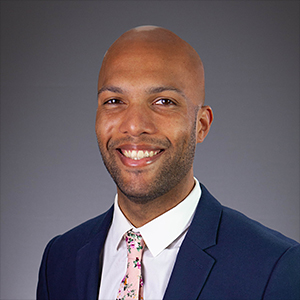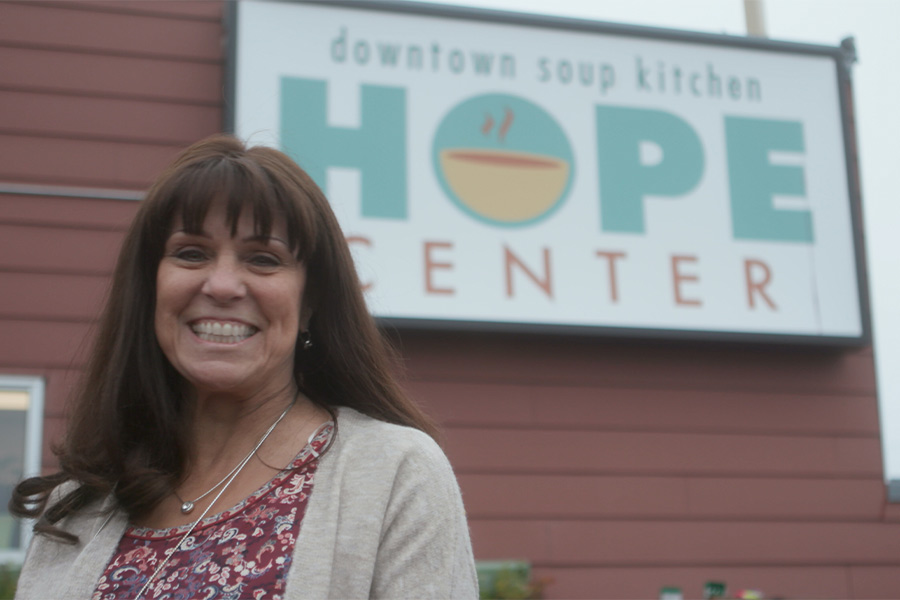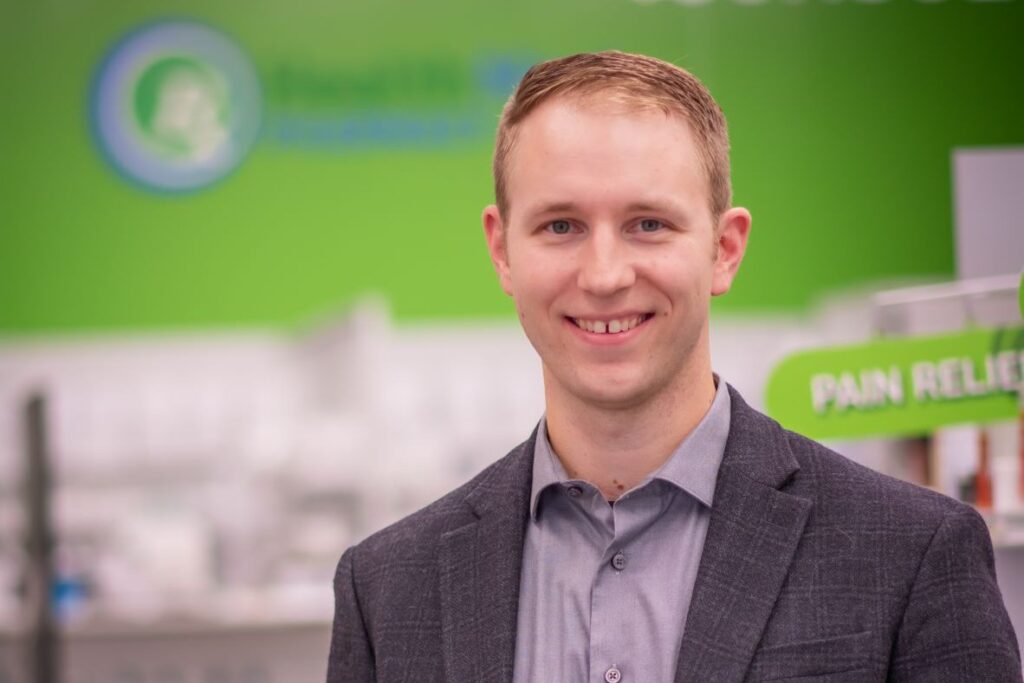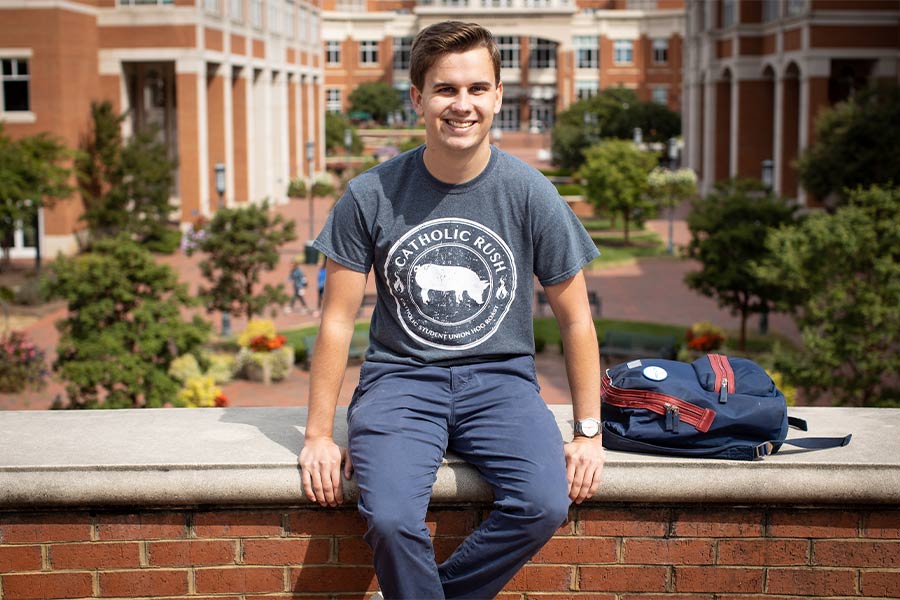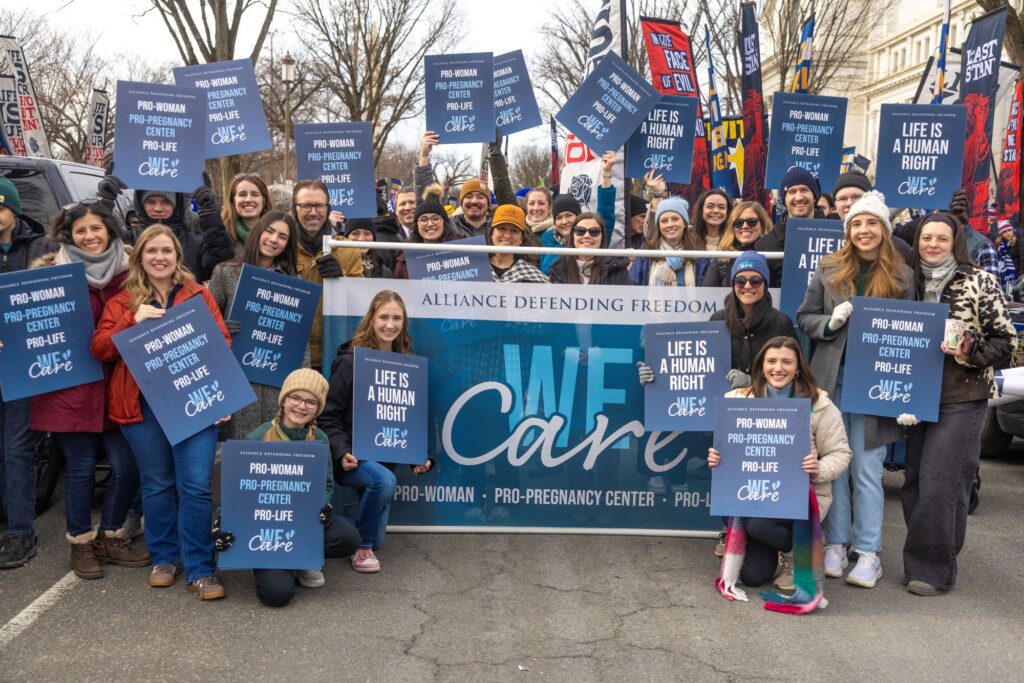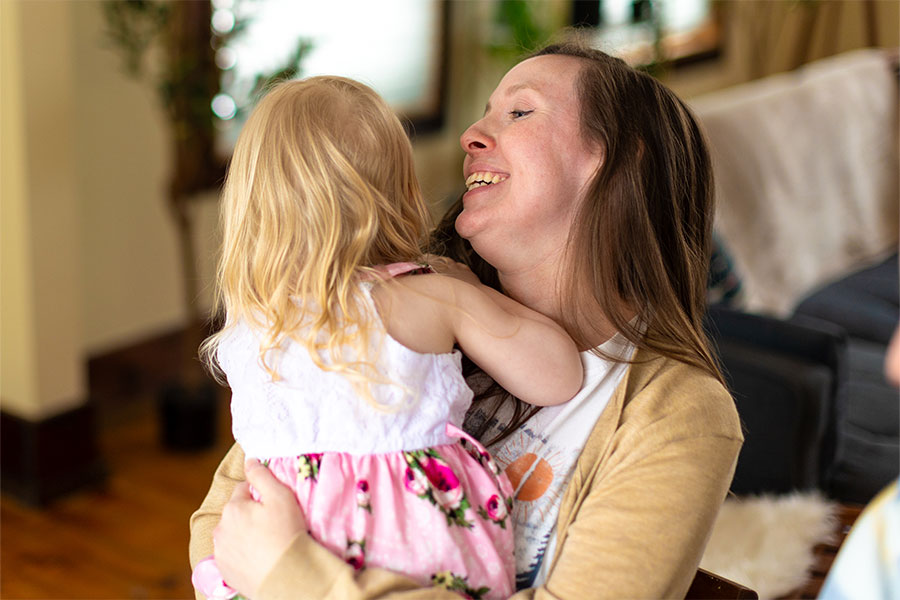
As of 2022, approximately 368,000 children are in foster care in the United States. Of those, over 108,000 are waiting to be adopted. With such a great need, you would think that all 50 states would be eager to place children with loving and qualified parents. But this isn’t so.
The problem? Some state officials are imposing an ideological litmus test to determine who is “qualified” to parent a child. In some states, if you don’t agree to adopt the government’s views on gender and sexuality, you will be banned from fostering or adopting children.
This is exactly what happened to the Wuoti and Gantt families.
Foster parents deemed ‘ineligible’ for their beliefs
Brian and Katy Wuoti first became licensed foster parents through the Vermont Department for Children and Families in 2014. They have adopted children through the foster care system, and one supervisor in the department even said she “probably could not hand pick a more wonderful foster family.”
In 2021, the Wuotis tried to renew their license so that they could continue caring for children in need. But they were informed of a new department policy requiring that parents use pronouns inconsistent with their children’s sex, take children to events like pride parades, and agree to affirm ideas and beliefs about gender “even if the foster parents hold divergent personal opinions or beliefs.”
As devoted Christians, the Wuotis would love and care for any child placed in their care. But they believe that God created everyone either male or female, and they cannot compromise those beliefs by lying to children about gender or taking them to events that violate their religious beliefs.
When the Wuotis explained this to a department employee, he told them that while he believed they would be a welcoming home for any child, their beliefs made them “essentially … ineligible for renewal of [their] foster parent license.” In April 2023, the Wuotis’ license was revoked.
Another foster license revoked
Similarly, Bryan and Rebecca Gantt had been licensed foster parents in Vermont since 2016, and they have adopted three children from foster care. Because the Gantts had already shown a willingness to adopt children affected by maternal drug and alcohol use, the department contacted them in September 2023 about fostering and likely adopting a baby boy who was about to be born to a woman addicted to drugs.
After praying about it, the Gantts decided to bring the boy into their home. But during the process, they received an email informing them that they must agree to promote gender ideology to a hypothetical child to keep their license.
Like the Wuotis, the Gantts told the department that while they would love and accept any child, they could not compromise their Christian beliefs.
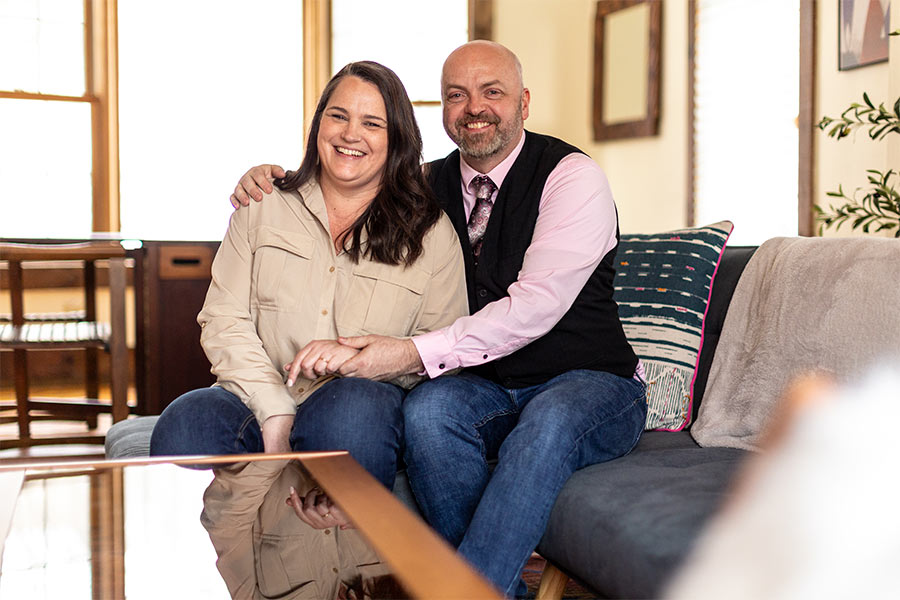
After Bryan expressed concerns about this new policy, a department employee called and asked whether he and Rebecca would use pronouns inconsistent with biology or attend pride parades with their children. After Bryan explained that these actions violated their beliefs, the department revoked the Gantts’ foster license.
By punishing the Wuotis and Gantts for living in accordance with their Christian beliefs, Vermont engaged in clear and impermissible religious discrimination. No family should be forced to choose between caring for children in need and following their religious beliefs, so Alliance Defending Freedom filed a lawsuit on behalf of these two couples.
A similar story plays out in Washington
In the state of Washington, the foster care system has struggled to find respite caregivers who can foster children for short periods of time, such as in emergency situations when the state removes a child from a home. In the 2023 fiscal year, over 100 children spent at least one night in temporary housing such as hotels or state offices—a reality that the state’s child advocate called “disruptive for children and often traumatic.”
Shane and Jenn DeGross feel called to follow God’s command to help those in need, and they did so by serving as foster parents from 2013 to 2022. They provided different lengths of care for different children, spanning from two weeks to nearly two years. In 2022, they sought to renew their license so they could provide respite care, which the state desperately needed.
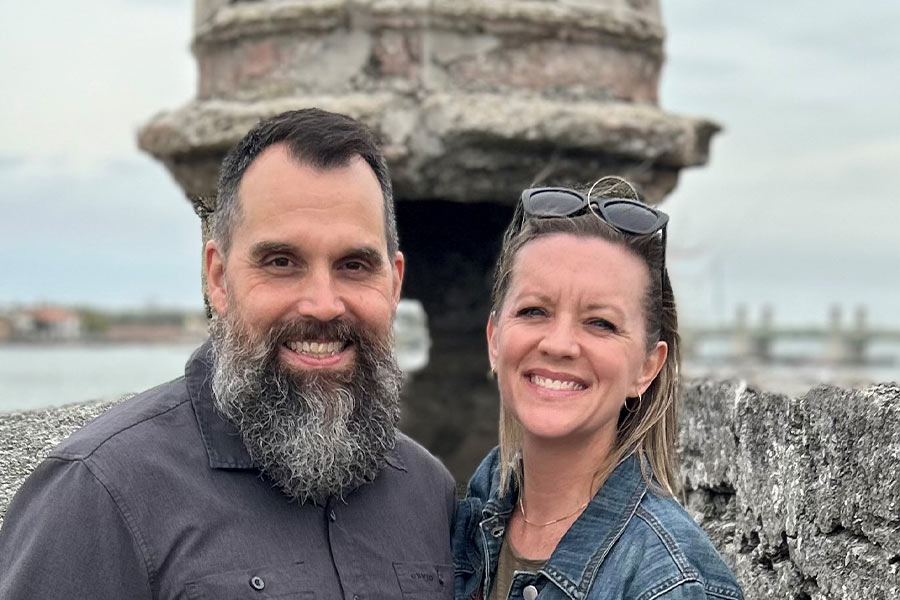
But when they began the renewal process with a licensing and child-placement agency, Shane and Jenn learned of new regulations from Washington’s Department of Children, Youth, and Families (DCYF) that required foster parents to agree to promote gender ideology by using inconsistent names and pronouns for hypothetical children they may foster.
Like the Wuotis and the Gantts, Shane and Jenn told state officials that they would love and care for any children placed in their care, but they could not violate their Christian beliefs by lying about biological reality. Rather than respecting these beliefs and renewing the license of foster care parents whom they desperately needed, DCYF denied the DeGrosses’ renewal application.
By discriminating against the DeGross family because of their religious beliefs, Washington officials took away a potential home for children in need. They also ignored a previous court ruling in a case called Blais v. Hunter that said “religious beliefs regarding LGBTQ+ issues cannot serve to disqualify” foster applicants. So, in March 2024, ADF attorneys filed a lawsuit challenging Washington’s discrimination against the DeGross family.
More government discrimination in adoption
Unfortunately, revoking foster care licenses isn’t the only way in which state officials have targeted people of faith. Some states are denying adoption applications from otherwise qualified prospective parents because they decline to parrot the government’s beliefs about gender and sexuality.
In Oregon, widow and mother of five Jessica Bates was inspired while listening to a Christian broadcast about a man who had adopted a child from foster care. She decided to pursue adoption herself, and she initially sailed through the state’s application process.
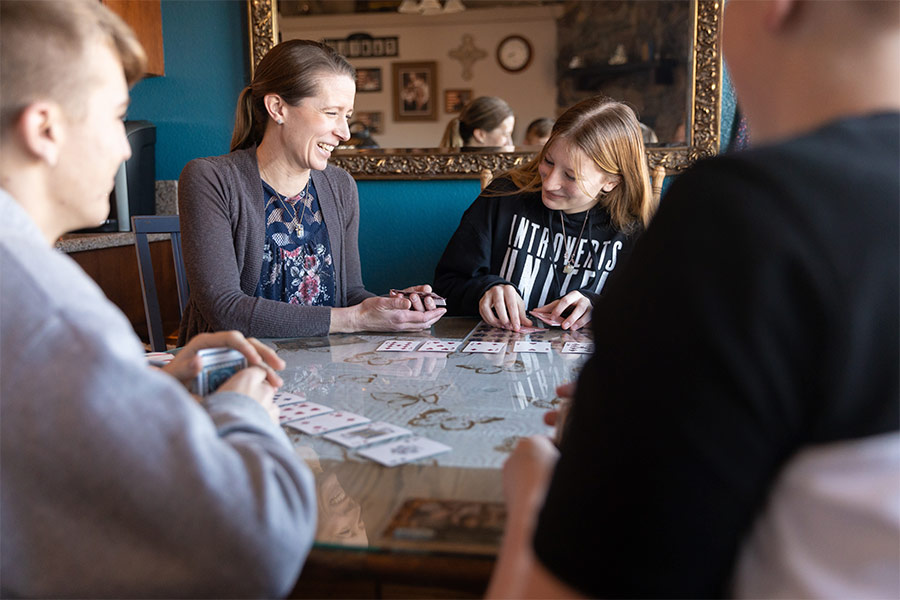
But during the training course, the Oregon Department of Human Services (ODHS) explained that people seeking to adopt must “accept and support” the sexual orientation and/or gender identity of any child whom ODHS could place in their home. This required applicants to agree to use inaccurate pronouns and facilitate a child’s access to dangerous and potentially sterilizing interventions like puberty blockers and cross-sex hormone shots.
Though Jessica would happily love and accept any children—regardless of how they identify—she could not agree to say or do anything that violates her faith.
When Jessica politely explained her concerns, state officials presented her with a choice: abandon your religious convictions or forgo the possibility of ever adopting a child. When Jessica stood her ground, the state denied her application—categorically excluding her from child welfare programs.
Jessica should not have to choose between violating her religious beliefs and forgoing the opportunity to adopt, which is why Alliance Defending Freedom is representing her in a lawsuit against ODHS officials.
In addition to discriminating against people of faith, government officials have also targeted faith-based adoption agencies. ADF has represented one such provider, New Hope Family Services, in a pair of lawsuits against two different New York state agencies. The state had targeted New Hope because of its practice of only placing children in homes with a married mother and father. ADF won both lawsuits, protecting New Hope’s ability to place infants in permanent homes without government harassment.
Excluding people of faith from adoption hurts children
Imposing radical gender ideology as a prerequisite for adoption only hurts children. Policies like Vermont’s, Washington’s, and Oregon’s categorically exclude people of faith (including many Christians, Orthodox Jews, Muslims, and others) who disagree with the government’s view of sex and gender.
Yet people of faith have long played a critical—and sometimes the only—role in caring for children in need. The Bible commands Christians to care for the orphan (James 1:27), and Christian and other faith groups started some of this country’s first orphanages. Even today, according to one survey, practicing U.S. Christians are more than twice as likely to adopt than the general population.
Even beyond faith groups, many Americans have beliefs similar or sympathetic to the those of the families above when it comes to the human body. Excluding those who believe in biblical marriage or biological sex only takes resources away from children who need it the most—children who are being housed in hotels, child welfare offices, emergency rooms, and homeless shelters for lack of loving homes or other facilities.
Beyond the effect on children, these policies also violate the First Amendment rights of would-be foster and adoptive parents. They categorically exclude entire religious communities from the adoption and foster care process based on their religious beliefs on gender and sexuality, violating constitutional protections for religious freedom and expression. These policies also violate the right to free speech by compelling parents to verbally assent to and promote the state’s ideology.
These policies need to end. No one should be forced to adopt a state’s radical gender ideology to give children a loving home.


